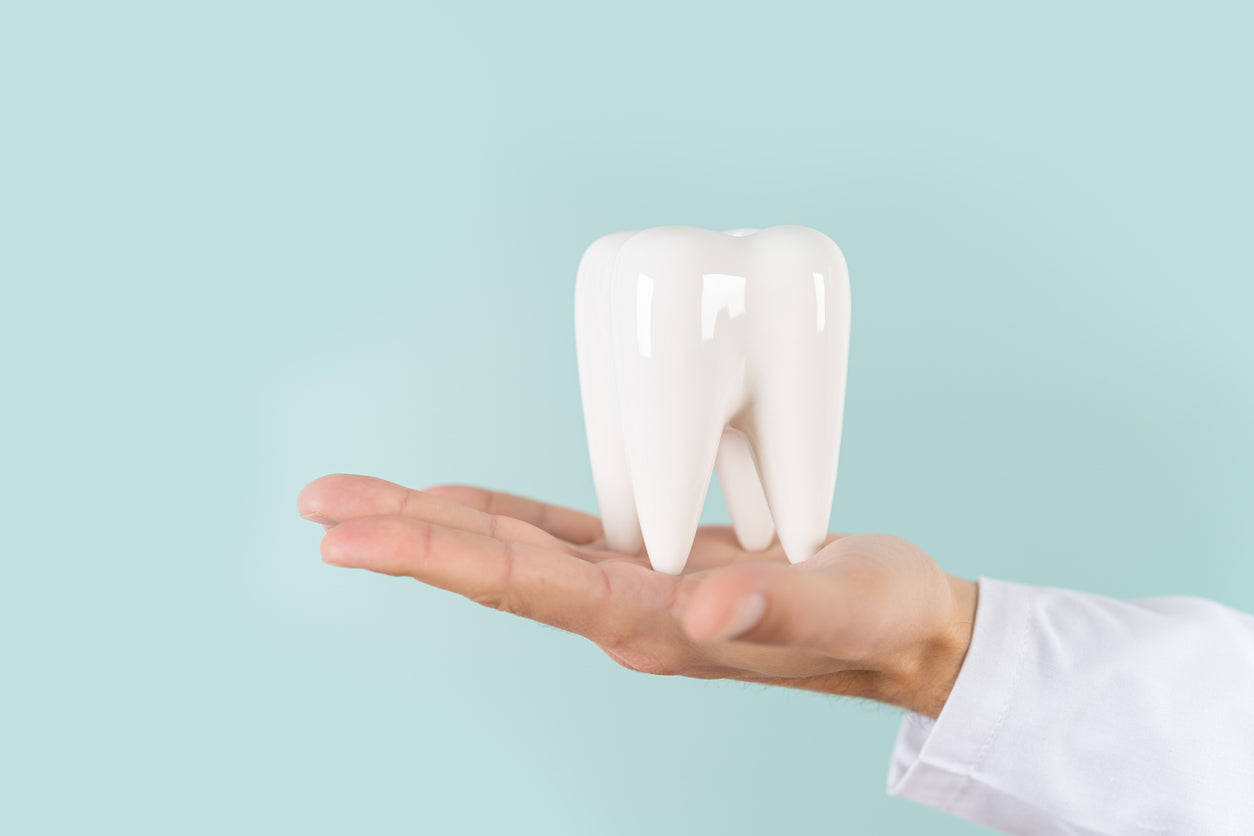A tooth extraction, while sometimes necessary, can be a source of anxiety for many, so questions about pain, recovery, and what to expect after extraction are common. At Dentalia, we understand these concerns, and want to provide reliable information to ease your mind, including a typical timeline of recovery after tooth extraction, and advice on what to do to help healing and manage any discomfort.
Most people will need to have a tooth removed at some point in their lives. It may be that they have an overcrowded mouth, and some teeth need to be removed as part of a teeth straightening treatment, or teeth may be damaged or decayed, leaving removal as the best option for a healthy mouth. Whatever the reason you may need to have teeth removed, we are here to put your mind at ease by letting you know what to expect after the extraction.
Healing timeline
Recovery after tooth extraction generally takes up to a month for soft tissue healing, and a few months for bone healing.
The Initial Healing Phase: The First Few Days
Immediately following a tooth extraction, it’s perfectly normal to expect some discomfort. The first 24-72 hours after extraction are crucial. This is when the blood clot forms, which is essential for proper healing. Avoid disturbing this clot by refraining from vigorous rinsing, spitting, or using straws, as if it is dislodged prematurely, this can lead to a painful condition called dry socket. This is where the underlying bone and nerves are exposed to air, food particles, and bacteria.
This is also the period where many patients feel that tooth extraction hurts the most, but don’t worry, we provide detailed post-operative instructions to manage any discomfort, including pain medication and cold compresses.
Week One: Gradual Improvement
During the first week, you’ll start to notice a significant improvement. Swelling and discomfort will gradually subside, and you'll likely be able to return to a more normal diet, though it’s still best to stick to softer foods. Continue to follow our post-operative care instructions carefully to aid healing.
Two Weeks to One Month: Soft Tissue Healing
By the end of the second week, the soft tissues in your gums should be well on their way to healing. The initial hole where your tooth was extracted will start to close. However, complete soft tissue healing can take up to a month.
Three to Six Months: Bone Healing
This is where the real magic happens, though it’s less visible. The bone in your jaw begins to fill the socket left by the extracted tooth. This process can take several months, typically between three to six. Full bone regeneration can sometimes take even longer. This is a very important part of the recovery.
Factors affecting recovery after tooth extraction
There are several factors that can affect how quickly you heal:
-
The complexity of the extraction: A simple extraction typically heals faster than a surgical extraction. For example, extracting impacted wisdom teeth is a much more complicated operation and will take longer to heal from.
-
Your overall health: Conditions like diabetes or a weakened immune system can slow down healing.
-
Smoking: Smoking significantly impedes healing and increases the risk of complications like dry socket.
-
Following healing instructions: Following our post-extraction guidelines is crucial for optimal healing.
Managing discomfort and ensuring proper healing
We understand that the thought of experiencing pain is a major concern. That’s why we provide comprehensive post-extraction care. Here’s what you can do:
-
Take prescribed pain medication as directed.
-
Apply cold compresses to reduce swelling.
-
Rinse gently with warm salt water after the first 24 hours.
-
Maintain good oral hygiene, but remember to be gentle around the extraction site.
-
Avoid strenuous activity for a few days.
-
Eat soft foods.
How much does tooth extraction cost
Many patients are also concerned about the cost of having a tooth removed. The price of a tooth extraction can vary depending on the complexity of the procedure. We always provide a detailed estimate during your consultation, so you know exactly what to expect.
When to contact us
While some discomfort is normal, contact us immediately if you experience:
-
Pain that doesn’t subside with medication.
-
Excessive bleeding.
-
Signs of infection, such as fever, persistent swelling, or pus.
-
A foul odour or taste.
-
Dry socket.
At Dentalia, we’re committed to providing you with the best possible care and ensuring a smooth recovery after your tooth extraction. If you have any questions or concerns, don’t hesitate to contact us by calling 01256 353033.





